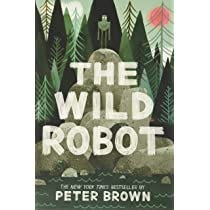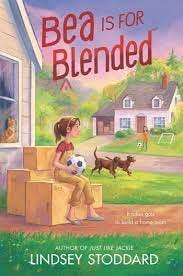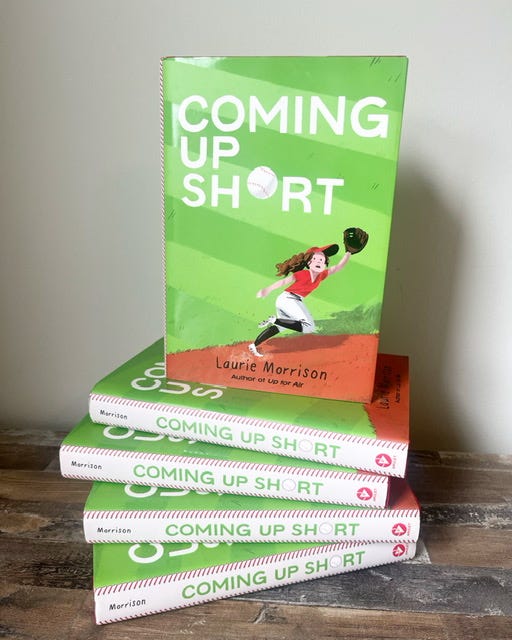I’ve been thinking about spoilers lately, because my children seem to love them.
My kids and I have been reading some longer books together—ones we can’t finish in one sitting—and as soon as there is any conflict or suspense, they’re desperate to know how the story ends. My daughter does this on her own with the Marisol Rainey books. There are enough illustrations that she can flip through to get a general sense of the story arc from the pictures and captions, reassuring herself that all will end well, before she’s ready to read each chapter word by word.
And we did something similar when we read The Wild Robot and The Wild Robot Escapes this spring. The first book had been a read-aloud in Cora’s class at school, so she already knew where the story was going—and wanted me to skip several chapters toward the end in which scary and upsetting things happened and just summarize them so she wouldn’t have to experience the details again. When things got tense in the second book, both kids wanted to know the ending. We skipped ahead to read the last chapter when we were about halfway through the book, and that reassured them enough to keep going.
The writer in me cringes at this desire for spoilers. I spend a lot of time and brain power thinking through exactly how to structure my novels so they propel readers to keep reading chapters (in order!) and build up to satisfying, emotionally resonant endings. But I want my kids to feel comfortable and enjoy reading together, and that wins out.
I recently listened to an episode of the excellent podcast Write Where It Hurts that made me think about spoilers in a different, more generous way. The episode was about tropes, and the discussion of tropes led into some conversation about spoilers. One of the hosts, Katryn Bury, said she loves spoilers because of having anxiety, and that totally made sense to me. If you are feeling anxious, then it helps to know where a story is going so you can feel reassured or opt out. That’s part of the reason why I’ve found myself drawn to romance novels and romantic comedies over the past couple of very anxious years—I always know (generally, if not specifically) where the story is going. I can anticipate the ending without flipping to the back to read the last chapter.
Katryn and her co-host Eva Des Lauriers also talked in that episode about TV shows that had terrible, triggering seasons in which there was un-earned, out-of-nowhere trauma, and I immediately thought back to college, when my friends and I would gather to watch Dawson’s Creek every week, and
***DAWSON’S CREEK SPOILERS INCOMING***
we were all caught completely off guard and absolutely devastated by Dawson’s dad’s ice-cream-related car accident death. Watching that show together was supposed to be a fun, relaxing, bonding experience. We felt so betrayed!
Sometimes (like in that Dawson season, if my memory of it is accurate) there are tragic twists that feel careless and manipulative. Maybe they happen because an actor needs to leave a show, not because of any overarching artistic vision. Other times, very sad, terrible things happen in books or shows or movies that feel right, even if they feel awful. It can offer relief and reassurance to read about a character who is enduring something very hard.
My experience of reading with my kids—and reading books alongside my middle school students when I was a teacher—has me thinking about how authors, parents, and teachers should handle really sad things that in books for kids, especially when those sad things are unanticipated turning points that might catch the characters and readers off guard.
There’s a lovely passage in Lindsey Stoddard’s Bea for Blended in which the main character, Bea, is reading Bridge to Terabithia, and her teacher gently prepares her for the tragedy that’s coming: “Ms. Kravitz […] opens Bridge to Terabithia to where my bookmark is, thumbs a few pages ahead, and purses her lips. She takes a big, serious breath. ‘The next time you’re reading,’ she says. ‘Make sure you’re in a cozy, safe place’” (231). I love the teacher characters in all of Lindsey’s books, and I really love this interaction, which doesn’t give a spoiler but prepares Bea and empowers her to decide when, where, and how she wants to experience the really sad part of the book.
And I love that phrase “a cozy, safe place.” To read a sad book, a kid might want to find a literal “cozy, safe place” where they’ll feel physically comfortable, and they also probably want to be in the right place emotionally, which—to me—is a point in favor of giving kids as much choice as possible about what they read so they’re not forced to read something very sad if they’re not in the right place for it—and giving kids spoilers if they ask for them. I realize there are times when a book is built around a twist in such a way that spoilers greatly diminish the reading experience . . . but those might not be the best books to give an anxious, spoiler-craving kid, anyway!
I also think that even if there’s a twist, and even for the readers who don’t want spoilers, children’s books should prepare kids for sad content in some way in case they don’t have a tuned-in grown-up like Ms. Kravitz to give them a timely heads up. That doesn’t mean that books for kids can’t explore sudden tragedies. There are some extraordinary, gorgeous, cherished books (like Bridge to Terabithia, and Jo Knowles’s See You at Harry’s, and Gillian McDunn’s When Sea Becomes Sky) that delve into unexpected traumas in masterful, loving ways and I know those books provide so much comfort and insight for many kids. I just think maybe the jacket copy should signal that there’s some kind of tragedy or heartbreak so readers who aren’t up for that can opt out. And/or maybe the tone of the early chapters should lay the groundwork in some way. I was devastated and betrayed by that Dawson’s creek episode that caught me totally off-guard when I was in college. An out-of-nowhere tragedy would have thrown me even more when I was a sensitive kid staying up after bedtime to read.
I’d love to know what you think. How do you feel about spoilers and big twists, especially in books for kids?
Book Recommendations
I loved You Are Here: Connecting Flights, a collection of interconnected stories exploring Asian American identity that’s edited by Ellen Oh and features many of my favorite authors. It has all the benefits of a short story anthology with powerful, well-crafted pieces that could stand alone, but I think it would also appeal to readers who prefer novels since the stories overlap and there’s a really powerful overall story arc. It was excellent on audio!
Morgan Matson’s middle grade debut, The Firefly Summer, is also an absolute delight, with charming characters, a fabulous summer setting, and a treasure hunt to boot! It reminded me a little bit of one of my favorite summer middle grade series—the Silver Sisters Series by Leila Howland, which I think more people should know about! That one starts with The Forget-Me-Not Summer and is similarly heartwarming and fun.
COMING UP SHORT Giveaway
Speaking of books set in summer, I’m partial to this one, and I’m giving away a copy to one subscriber! Coming Up Short has officially been out for one year (as of June 21st). It’s a sporty, summery, heartfelt upper MG about softball, the yips, family, and what it means to be a team. To enter to win a copy (either hardcover or audio—your choice), either reply to this email OR comment with the word “entering,” and I’ll randomly select one winner. US only please.
Thanks for reading as always, and happy summer!
Love, Laurie







I am occasionally an anxious flip-to-the-ender, especially if there's a dog or a cute little child in the book. If the cute little child gets kidnapped or swallows a button battery or something equally terrifying, I will 100% go to the last page to make sure they are ok before continuing! I would love all my twists and turns to be a surprise as intended for readers, but I never want to stress anyone out, so if they need to flip to the end, that's fine by me.
This is so interesting! And totally agreed, one of the reasons I love rom-coms, and always have.